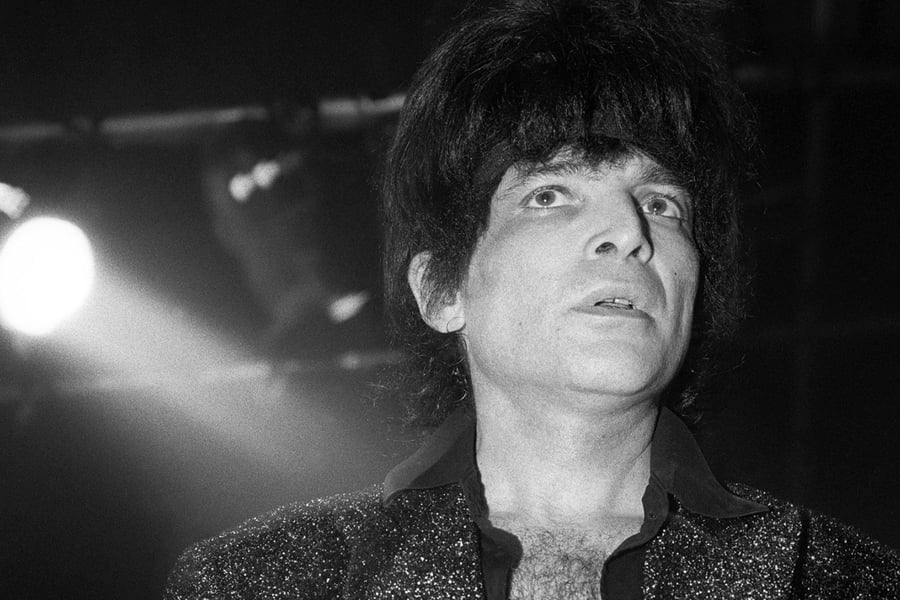The admiration that Bruce Springsteen felt for New York City electropunks Suicide and their singer, the late Alan Vega, is well documented. The hushed, claustrophobic sounds of the group’s first two albums inspired Springsteen’s approach to some songs on his 1982 album, Nebraska, and he has recorded a cover of Suicide’s “Dream Baby Dream” and performed it live. Now Springsteen has penned a foreword to Infinite Dreams: The Life of Alan Vega, which comes out Tuesday.
Written by Laura Davis-Chanin and Vega’s wife and collaborator, Liz Lamere, Infinite Dreams chronicles Vega’s unique life and how meeting Iggy Pop in 1969 inspired him to form Suicide with Martin Rev. The book, which follows newly released recordings by Vega and Lamere, contains rare photos, lyrics, and quotes from Vega and those who knew him best.
“My hope is that this biography will give a deeper understanding of a human being who was often misunderstood and never wavered in his commitment to pure artistry: fearlessly seeking new ground,” Lamere tells Rolling Stone. “Alan Vega lived his life through the lens of creation: tapping into the full spectrum of human emotion, deeply exploring the human condition and the duality of beauty and despair while never losing sight of hope.”
“During the writing of this book, I learned about a man who struggled with many demons — the Vietnam war, the oppression of the disenfranchised, the confusion with his born religion,” Davis-Chanin says. “He weathered life in fierce and volcanic tones and wrote, performed, and sculpted this experience.”
Here’s what Springsteen had to say about Vega in his foreword:
Alan and I were in the same studio — the Hit Factory. He was there working with Ric Ocasek. Alan was coming from the outside but I’d heard of his group and I’d heard some of their music and it entranced me — his courage and his aesthetic was something that deeply appealed to me. He was just incredible. So that was kind of when we actually met and struck up a small conversation.
His level of integrity and the way he approached his work was inspiring — quite inspiring. And that’s the way I always found him to be, and he was also very sweet — in the time that we spent, he was always a sweetheart of a guy. Of course, I loved his music and did that recut of “Dream Baby Dream,” which people really loved. It’s the classic American hymn. It’s just really beautiful. And I had an idea that if Roy Orbison had lived, this was a song he should have cut. So, my own approach to performing the song was if Roy Orbison had sung this song, he would sing it something like this.
Love Music?
Get your daily dose of everything happening in Australian/New Zealand music and globally.
And “Frankie Teardrop” — that was incredible. That might be his greatest piece of work right there — certainly his scariest. It had a terror-filled ambience that people weren’t expressing in rock music at the time, and it was totally unique. The sound of his voice was: “Whoa, this is—!” It was something I really related to. And definitely inspired the way I wrote “State Trooper” and a few other things on Nebraska. Very, very influential.
I liked the idea that he approached his work as mainstream. He would say, “Hey, why shouldn’t everybody be getting this?” Well, it wasn’t quite that and obviously if you get on the wrong bill, you’re going to have a problem. I opened up for Chicago for thirteen shows and dodged Frisbees for a good part of it. But it was nothing like what Alan had to suffer. And I know that he and Marty really went through a lot and it took real courage; they were brave. In the end though, Alan will last forever … his music will be here forever.
From Rolling Stone US



































